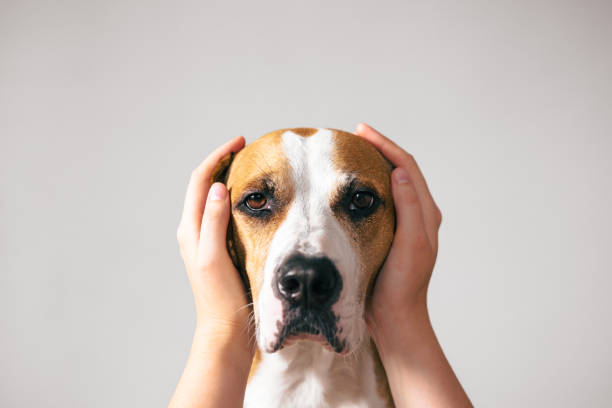Introduction
Animals are sensitive to stress, anxiety, and depression in their environment. The health of pets and people is negatively impacted by the effects of these conditions on animals and humans alike.

Stress can be physical, mental and emotional.
Stress is a normal reaction to perceived threats. In some cases, it can be good for us and in other cases it isn’t. Stress can cause physical changes such as increased heart rate and blood pressure, muscle tension or loss of appetite. It can also lead to psychological changes like irritability or depression that may not be visible at first glance but still affect how pets respond to situations with their owners or other animals in their environment (or even just strangers). It’s important for pet owners who are experiencing stress symptoms themselves or those who know someone else who does because these symptoms may lead them towards unhealthy behavior changes within their pets’ lives as well!
Stress and anxiety can cause unhealthy behavior changes in pets.
Pets can also develop behavioral problems as a result of stress or anxiety. For example, a pet may begin to exhibit destructive behavior like chewing on furniture or other items in your home that you’re trying to keep clean and sanitary. Your pet may also become more aggressive towards people and other animals in its environment, which could lead to fights with other pets or humans.
The biological effects of stress on pets can be serious.
Stress can have a major impact on your pet’s health and well-being. Research shows that stress can affect the immune system, cardiovascular system, digestive system and reproductive system. It may also affect the nervous system in ways that are not fully understood yet by scientists.
Anxiety can manifest in destructive behavior or aggression.
Anxiety is a common condition that can cause destructive behavior or aggression. It can be hard to tell the difference between anxiety and an underlying medical condition, so it’s important to seek out a veterinarian if you suspect your pet may be suffering from this type of stress.
Anxiety can manifest in many ways, including:
- Destructive behavior (e.g., biting)
- Aggression towards people or other animals (including pets)
Pets are capable of experiencing both anxiety and depression.
Pets are capable of experiencing both anxiety and depression. Both can be treated with medication, behavioral therapy, and other treatments. In addition to being diagnosed by a vet or mental health professional, you should also talk to your vet about helping your pet cope with stressors in their environment—including things like petting sessions at the veterinarian’s office that can cause pets to feel anxious when they’re not home (and therefore out of sight).
Stress and anxiety can be hard on pets.
Stress and anxiety can be hard on pets. Pets experience stress and anxiety in the same way as humans, causing physical, emotional and behavioral symptoms.
- Picking up on subtle changes in your pet’s behavior: When you’re stressed out, your pet may hide a lot more than usual—or even refuse to play or eat at all.
- Becoming withdrawn: If you’re worried about something that has nothing to do with them (like an upcoming move), they may feel like there’s no point in being around people because they’ll just get left behind once again when everyone else leaves town.
Pets that are anxious may spend more time hiding than playing.
Anxiety is a common problem in pets, but it can also be a sign of a medical condition. If you suspect that your pet might have anxiety, talk to your veterinarian about what’s causing the behavior and how best to treat it.
Anxiety can lead to hiding or avoidance behaviors such as pacing or panting at night—both of which may cause weight loss and digestive problems for some dogs. The best treatment for these types of stress symptoms is anti-anxiety medication such as clomipramine.
Some pets will scratch until they bleed when they’re anxious.
Some pets will scratch until they bleed when they’re anxious. This is a behavioral response that can be triggered by many things, including travel or separation anxiety. Anxiety can manifest in destructive behavior or aggression: if your dog has suddenly stopped sleeping because he’s too scared, for example, it may be time to see a vet about the cause of his distress.
Stress and anxiety have powerful effects on animal physiology.
Stress and anxiety have powerful effects on animal physiology. The stress responses can alter the way the body functions, causing physical changes in the body. For example, when you’re stressed out, your heart rate increases and blood pressure goes up. This puts a lot of extra demand on your cardiovascular system—and if it’s not properly functioning, this increase in demand can lead to injury or death.

Stress can lead to physical, psychological and behavioral changes.
Stress and anxiety can have a number of effects on your pet’s health. Stress can lead to physical, psychological and behavioral changes in the body. Some of these include:
- Increased heart rate, blood pressure, respiration and muscle tension.
- Feeling afraid or anxious about something (causing distress).
- Being aggressive towards people or animals that are not part of their family unit (can also be called dominance behavior). This is not typical for every dog because it depends on what they’re used to doing with other dogs at home but if you notice this happening regularly then there may be something else going on that needs addressing such as lack of training or socialization issues elsewhere within life outside our house where we live together as one big family unit!
Anxiety has a negative impact on the health of both pets and people.
If your pet feels stressed out, it’s important to look at what is causing the stress and try to reduce it by changing their environment or behavior (if necessary). For example: if they’re stuck in their crate all day long because they’re nervous about being left alone after dinner time, try letting them out earlier so they have more freedom during the day; give them something else to do while waiting for dinner time; clean up after yourself when cooking so there aren’t any dirty dishes lying around; etc..
Dealing with stress and anxiety is as important for pets as it is for humans
The impact of stress and anxiety on pet health can be as devastating as it is for humans. Stress and anxiety can cause a wide range of physical complaints, including heart disease, seizures, thyroid problems and even cancer. This is why we need to be proactive in helping our pets deal with these issues.
The good news is that you don’t have to be alone when you’re dealing with this type of problem! There are many things you can do to help your furry friend cope with stress or anxiety:
- Pay attention to signs like how they’re acting around other people or animals (for example if they become agitated)
- Try finding ways for them to relax such as playing fetching toys or going on long walks together

Conclusion
Stress and anxiety are two of the most common mental health disorders in humans, but they can also affect our pets. In this article, we’ll explore how stress and anxiety affect dogs and cats–and what you can do to help your furry friend cope with their issues.




